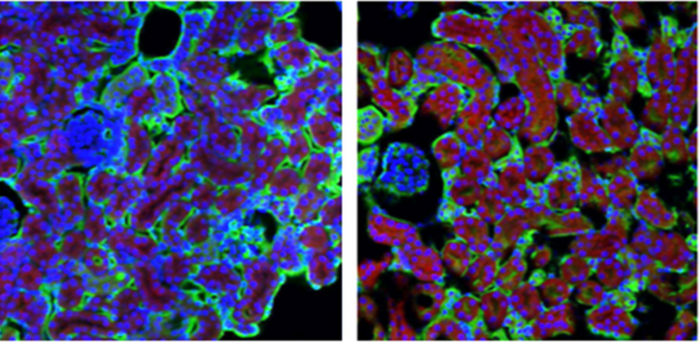EAST LANSING, Mich. – A Michigan State University researcher is part of an international team that found an existing drug may help decrease side effects of cisplatin, a widely used cancer treatment that was discovered at MSU in 1965.

Credit: Credit: Geoffroy Laumet Michigan State University
EAST LANSING, Mich. – A Michigan State University researcher is part of an international team that found an existing drug may help decrease side effects of cisplatin, a widely used cancer treatment that was discovered at MSU in 1965.
Since its discovery, cisplatin has become the gold standard against which all cancer treatments are measured. Currently, cisplatin is used to treat testicular, ovarian, bladder, lung, stomach and head and neck cancers. While cisplatin has proven to be an effective chemotherapy drug to treat cancer, the side effects of the treatment can be debilitating and may result in treatment cessation. Examples of such side effects include peripheral neuropathy, which causes severe pain in hands and feet, and kidney toxicity, which can lead to kidney failure in 35% of patients who take cisplatin. Currently, no drugs are available that reduce these side effects.
Patients taking cisplatin undergo weekly blood tests to monitor kidney function and look for kidney damage caused by the drug to determine whether they can safely withstand another round of treatment. If a patient experiences kidney toxicity, current options include pausing treatment or reducing the dosage of the chemotherapy. Some patients choose to discontinue treatment because the painful neuropathy in their extremities is too intense.
Now, there may be a solution to help patients beat cancer and reduce the severity of their treatment’s side effects. MSU researcher Geoffroy Laumet, along with his team and an interdisciplinary group of scientists from the University of Lille, the University of Strasbourg and the Pasteur Institute of Lille in France and the University of Coimbra in Portugal, has found that istradefylline, a drug already approved by the FDA and used to treat Parkinson’s disease, can reduce the side effects of cisplatin while preserving its cancer-fighting strength.
Laumet is an assistant professor in the College of Natural Science who specializes in cisplatin-induced neuropathic pain. While the researchers in France and Portugal showed that istradefylline reduces kidney toxicity, together with Laumet, the international team demonstrated that istradefylline also can alleviate peripheral neuropathy and improve tumor control.
“The exact interaction between istradefylline and cisplatin remains to be determined but we do know that tumor cells and cells that are stressed by the toxicity of cisplatin will release a lot of adenosines,” Laumet said. “Istradefylline blocks the effects of adenosine.”
While istradefylline has been proven to be safe in humans, the current experiments showing its efficacy in combating the side effects of cisplatin have only been conducted on animal models. The next step is for the team to collaborate with researchers that specialize in human clinical trials.
“The preclinical research results have been promising,” said Laumet. “In the future with istradefylline, the hope is that patients would be able to keep taking cisplatin without side effects or losing the drug’s effectiveness.”
The research was published in the Journal of Clinical Investigation.
Read more about cisplatin’s legacy on MSUToday and in the College of Natural Science’s Connections magazine.
By Emilie Lorditch
Read on MSUToday.
###
Michigan State University has been advancing the common good with uncommon will for more than 165 years. One of the world’s leading research universities, MSU pushes the boundaries of discovery to make a better, safer, healthier world for all while providing life-changing opportunities to a diverse and inclusive academic community through more than 200 programs of study in 17 degree-granting colleges.
For MSU news on the Web, go to MSUToday. Follow MSU News on Twitter at twitter.com/MSUnews.
DOI
10.1172/JCI152924




